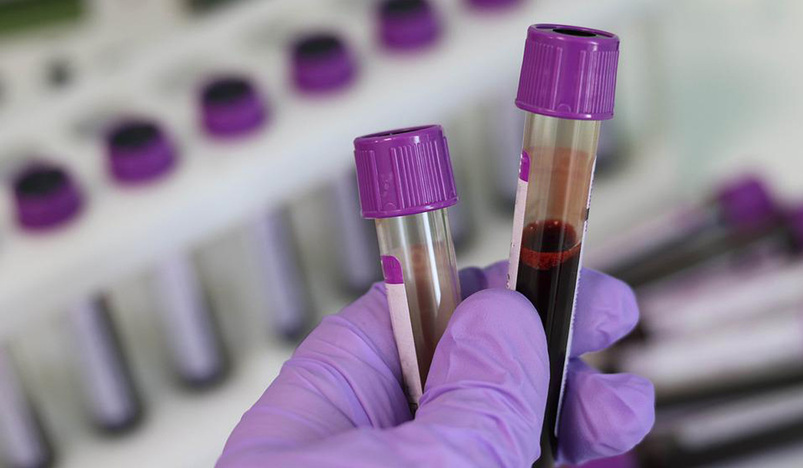
Drug Trial
18 rectal cancer patients were given the same drug for six months and as a result of the treatment, cancer was completely obliterated in every patient.
A small group of people with rectal cancer just experienced something of a miracle as their cancer simply vanished after an experimental treatment. According to New York Times, in a very small clinical trial, 18 patients took a drug called Dostarlimab for around six months, and in the end, every one of them saw their tumours disappear.
Dostarlimab is a drug with laboratory-produced molecules that act as substitute antibodies in the human body. All 18 rectal cancer patients were given the same drug and as a result of the treatment, cancer was completely obliterated in every patient - undetectable by physical exam; endoscopy; positron emission tomography or PET scans or MRI scans.
Dr Luis A. Diaz J. of New York's Memorial Sloan Kettering Cancer Center said this was “the first time this has happened in the history of cancer”.
As per New York Times, the patients involved in the clinical trial faced gruelling previous treatments to obliterate their cancer, such as chemotherapy, radiation and invasive surgery that could result in bowel, urinary and even sexual dysfunction. The 18 patients went into the trial expecting to have to go through these as the next step. However, to their surprise, no further treatment was needed.
The findings are now making waves in the medical world. Speaking to the media outlet, Dr Alan P. Venook, who is a colorectal cancer specialist at the University of California, said that the complete remission in every single patient is “unheard-of”. He hailed the research as a world-first. He even noted that it was especially impressive as not all of the patients suffered significant complications from the trial drug.
Separately, Memorial Sloan Kettering Cancer Center and a co-author of the paper, oncologist Dr Andrea Cercek, described the moment patients found out they were cancer-free. “There were a lot of happy tears,” she told the New York Times.
For the trial, patients took Dostarlimab every three weeks for six months. They were all in similar stages of their cancer - it was locally advanced in the rectum but had not spread to other organs.
Now, the cancer researchers who reviewed the drug told the media outlet that the treatment looks promising, but a larger-scale trial is needed to see if it will work for more patients and if the cancers are truly in remission.
.jpg)
Qatar Secures Place Among the World's Top 10 Wealthiest Nations
.jpg)
Hamad International Airport Witnesses Record Increase in Passenger Traffic

Saudi Arabia: Any visa holder can now perform Umrah

What are Qatar's Labour Laws on Annual Leave?
Leave a comment